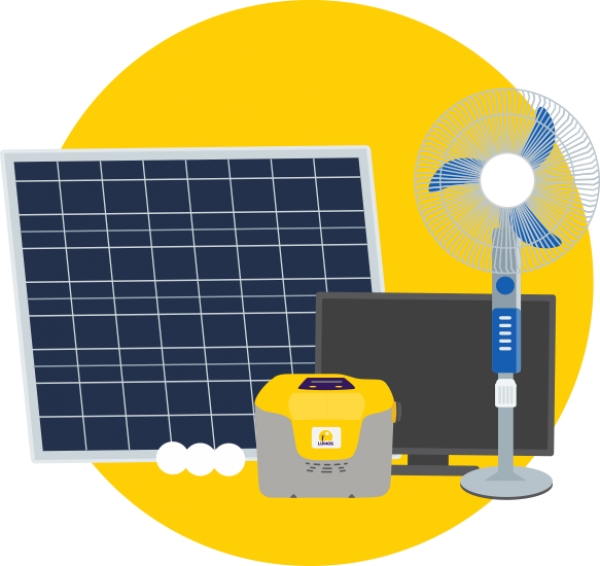In all fairness and with the best of intentions, the national electricity grid in Nigeria is far from perfect. In fact, it is as far from perfect as a national electricity grid can be. The populous nation of over 200 million has merely 25 industrial-grade power plants across the country, many of which are not fully functional. These plants provide a nominal capacity of 5,000MW, while the minimum required capacity to meet the needs of the nation is 40,000MW.
Nigerians have resorted to all sorts of quick fixes to make up for this power deficit. Whenever the electricity grid fails—as it often does—one can hear hundreds, if not thousands, of diesel generators coming to life with a roar in each neighborhood or village. Although these noisy generators restore the light and all the convinces that come with electricity, they are highly pollutant.
It is estimated that small diesel generators owned by Nigerian families and businesses have a combined capacity of 15,000MW—three times the capacity of the national grid. Given that many of these generators are aging and poorly maintained, it is hardly any surprise that they release a huge array of pollutants into the air, to say nothing of the nerve-racking noise they make. However, there may soon be an affordable solution available that can put an end to this fiasco. If Nigerian families and businesses are to generate their own electricity from time to time, then why shouldn't they tap into the clean, quiet, and freely accessible solar energy, especially given the high level of sunlight that almost all parts of Nigeria receive?
Over the last years, the price of photovoltaic (PV) panels has fallen significantly, while their efficiency has improved. Meanwhile, battery systems to save the electricity generated during the sunnier hours for the dark hours of the night have also improved and become more affordable.
Many companies now offer complete home photovoltaic solutions in Nigeria and other parts of Africa that come complete with PV panels, batteries, DC to AC converters, and the required cabling that can completely meet the electricity needs of a Nigerian home or business. What is more exciting is that these solutions can now compete with old-fashioned diesel generators not only in terms of generation capacity but also installation costs.
A study by Babajide and Brito, published in the journal Renew-able Energy, found that PV solutions can soon replace diesel generators in Nigeria, and the financing of their installation can—in the long run—be partly based on savings in fuel prices. After all, diesel is not a cheap commodity in Nigeria, while sunlight is completely free. The researchers also pointed out that “effective government policy is key to the adoption and diffusion of solar PV.”
And, indeed, both the government and NGOs are taking a keen interest in the matter. In 2020, and despite the calamities of Covid-19, a USD75-million fund was launched to help electrify Nigeria using domestic PV systems. Netherlands-based PV panel manufacturer, Lumos, is determined to light up 1 million Nigerian households over the next five years. This is good news for over half of all Nigerian households that have no access to the national grid, especially as other foreign and domestic companies follow the lead of Lumos. The company's business model is interesting, and it suits many underprivileged citizens who may not have particularly deep pockets. The company installs the PV panels on the roofs of Nigerian homes and businesses, but it does not bill the buyers upfront or even after the installation. The users have to pay a reasonable daily fee to the company only for the amount of electricity generated on that particular day.
Other business models used by PV manufacturers may transfer the ownership of the photovoltaic solutions to the Nigerian users once the installer has been reimbursed fully in small monthly installments. This will let Nigerian households to practically use free electricity for a long time after settling their accounts with the PV installing companies over an extended period—which is nothing short of a revolutionary convenience for many underprivileged Nigerians.
As sunlight is an endless, plentiful resource in Nigeria, reasonably priced plans for the installation of domestic PV solutions can help electrify Africa's largest economy and raise the efficiency and profitability of Nigerian businesses, ultimately helping Nigeria to become an even more prosperous economy. The fact that technology is giving us better and cheaper photovoltaic panels, batteries, and DC to AC converters with every passing day is just another bonus.

